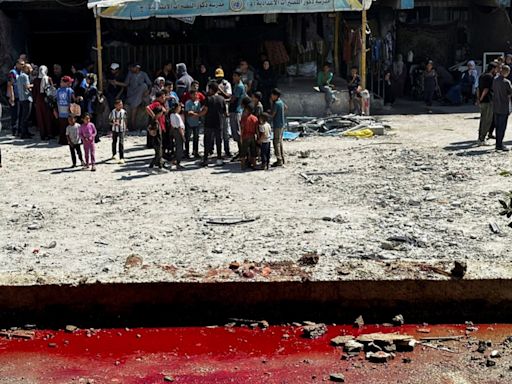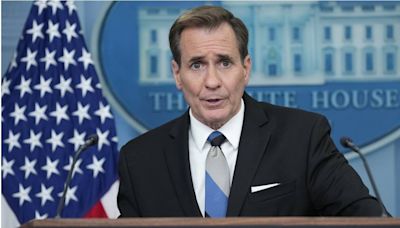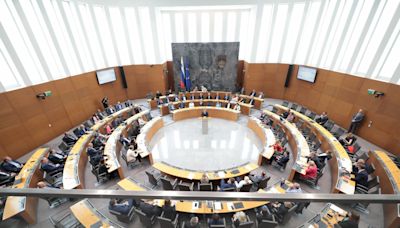搜尋結果
The Israeli–Palestinian conflict is an ongoing military and political conflict about land and self-determination within the territory of the former Mandatory Palestine.
The war is the deadliest conflict for the Palestinians in the entirety of the Arab-Israeli conflict. [99] [100] The war began when Hamas-led militant groups launched a surprise attack on Israel on 7 October. An estimated 3,000 militants breached the Gaza–Israel barrier and attacked Israeli civilian communities and military bases.
- Ongoing
Background. National movements. Before World War I, the Middle East region, including the Ottoman Syria (the southern part of which are regarded as Palestine ), was under the control of the Ottoman Empire for nearly 400 years. [6] .
- Overview
- Historical Background
- One-State Debate Since 1999
- Arguments For and Against
- Public Opinion
- Views of Current Situation
- Further Reading
The "one-state solution" refers to a resolution of the Israeli–Palestinian conflict through the creation of a unitary, federal or confederate Israeli-Palestinian state, which would encompass all of the present territory of Israel, the West Bankincluding East Jerusalem, and possibly the Gaza Strip and Golan Heights. Depending on various points of vi...
Antiquity until World War I
The area between the Mediterranean Sea and the Jordan River was controlled by various national groups throughout history. A number of groups, including the Canaanites, the Israelites (who later became the Jews), the Babylonians, Persians, Greeks, Jews, Romans, Byzantines, Umayyads, Abbasids, Seljuk Turks, Crusaders, Mamluks, Ottomans, the British, Israelis, Jordanians, and Egyptians have controlled the region at one time or another. From 1516 until the conclusion of World War I, the region wa...
Ottoman and later British control
From 1915 to 1916, the British High Commissioner in Egypt, Sir Henry McMahon, corresponded by letters with Sayyid Hussein bin Ali, the father of Pan Arabism. These letters, were later known as the Hussein–McMahon Correspondence. McMahon promised Hussein and his Arab followers the territory of the Ottoman Empire in exchange for assistance in driving out the Ottoman Turks. Hussein interpreted these letters as promising the region of Palestine to the Arabs. McMahon and the Churchill White Paper...
Establishment of Israel
The 1948 Arab–Israeli War resulted in Israel's establishment as well as the flight or expulsion of over 700,000 Palestinians from the territory that became Israel. During the following years, a large population of Jews living in Arab nations (close to 800,000) left or were expelled from their homes in what has become known as the Modern Jewish Exodusand subsequently resettled in the new State of Israel. By 1948, in the wake of the Holocaust, Jewish support for partition and a Jewish state had...
A poll conducted in 2010 by Israel Democracy Institute suggested that 15% of right-wing Jewish Israelis and 16% of left-wing Jewish Israelis support a binational state solution over a two states solution based on 1967 lines. According to the same poll, 66% of Jewish Israelis preferred the two-state solution. Some Israeli government spokespeople hav...
In favor
Today, the proponents for the one-state solution include Palestinian author Ali Abunimah, Palestinian writer and political scientist Abdalhadi Alijla, Palestinian-American producer Jamal Dajani, Palestinian lawyer Michael Tarazi, American-Israeli anthropologist Jeff Halper, Israeli writer Dan Gavron, Lebanese-American academic Saree Makdisi, and Israeli journalist Gideon Levy.The expansion of the Israeli Settler movement, especially in the West Bank, has been given as one rationale for bi-nat...
Against
Critics[which?] argue that it would make Israeli Jews an ethnic minority in the only Jewish country.[clarification needed] The high total fertility rate among Palestinians accompanied by a return of Palestinian refugees, would quickly render Jews a minority, according to Sergio DellaPergola, an Israeli demographer and statistician. Critics[which?] have also argued that Jews, like any other nation, have the right to self-determination, and that due to still existing antisemitism, there is a ne...
A multi-option poll by Near East Consulting (NEC) in November 2007 found the bi-national state to be less popular than either "two states for two people" or "a Palestinian state on all historic Palestine" with only 13.4% of respondents supporting a binational solution.However, in February 2007, NEC found that around 70% of Palestinian respondents b...
In a 2021 survey of experts on the Middle East, 59 percent described the current situation as "a one-state reality akin to apartheid".
Ali Abunimah (2007). One Country: A Bold Proposal to End the Israeli–Palestinian Impasse. Macmillan. ISBN 978-0-8050-8666-9.Bakan, Abigail B.; Abu-Laban, Yasmeen (2010). "Israel/Palestine, South Africa and the 'One-State Solution': The Case for an Apartheid Analysis". Politikon. 37 (2–3): 331–351. doi:10.1080/02589346.2...Bisharat, George E. (2008). "Maximizing Rights: The One State Solution to the Palestinian-Israeli Conflict". Global Jurist. 8 (2). doi:10.2202/1934-2640.1266. S2CID 144638321.Alan Dershowitz (4 August 2006). The Case for Peace: How the Arab–Israeli Conflict Can be Resolved. John Wiley and Sons. ISBN 978-0-470-04585-5. Retrieved 29 April 2011.Palestine [i] is a geographical region in West Asia. It is usually considered to include modern-day Israel and the State of Palestine, though some definitions also include parts of northwestern Jordan. Other historical names for the region include Canaan, the Promised Land, the Land of Israel, or the Holy Land .
Israeli–Palestinian peace process - Wikipedia. Contents. hide. (Top) Views of the peace process. Major current issues between the two sides. Background. Timeline. Alternative peace proposals. Joint economic effort and development. See also. Notes. References. External links. Israeli–Palestinian peace process. Part of a series on.
Introduction. The Fate of Palestine: An Interview with Noam Chomsky. Clusters of History: US Involvement in the Palestine Question. State of Denial: The Nakbah in Israeli History and Today. "Exterminate All the Brutes": Gaza 2009. Blueprint for a One-State Movement: A Troubled History.




